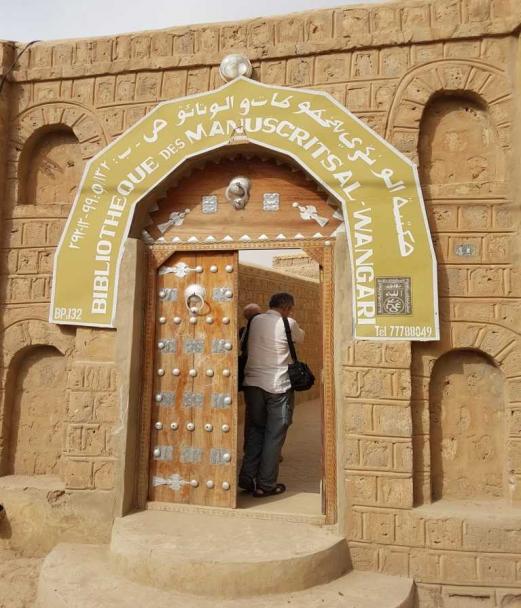
The al-Wangari Manuscript Library was officially opened on September 26, 2003, and is overseen by Mukhtar bin Yayha al-Wangari. The library consists of approximately 3000 manuscripts and is based on the original library of Shaykh Muhammad Baghayogho, a distinguished 16th-century shaykh and jurist originally from the town of Jenne.
This collection contains many works by Sudanese and Moroccan scholars. The oldest document consists of copied parts of the Qur’an and is dated to 1695. Besides religious texts, it also contains some important historical documents.
The library was established sometime between Shaykh Baghayogho al-Wangari’s settlement in Timbuktu and his death in 1594. Although the library was preserved by the shaykh’s son and then several generations after him, it ultimately dissolved over time. The manuscripts were scattered amongst various family members in Jenne, Goundam and also Timbuktu.
It was through the efforts of Mukhtar bin Yayha al-Wangari that a comprehensive attempt to recollect these manuscripts was made. Through research involving oral testimony and primary written documentation, as well as meetings with the entire family, he managed to revive Shaykh Muhammad Baghayogho’s library.
During the 2012 crisis, the al-Wangari Manuscript Library was one of the collections that chose to remain in Timbuktu. The majority of the Timbuktu manuscripts were removed from the town to Bamako by SAVAMA -DCI, where they are now receiving intensive treatment through digitisation and conservation, funded by a large number of international sponsors. The collections that remained in Timbuktu however, were not able to find sponsorship for the digitisation of their manuscripts until 2017, when they received funding from the Endangered Archives Programme from British Library, with a project entitled Endangered Libraries In Timbuktu (EAP1094).